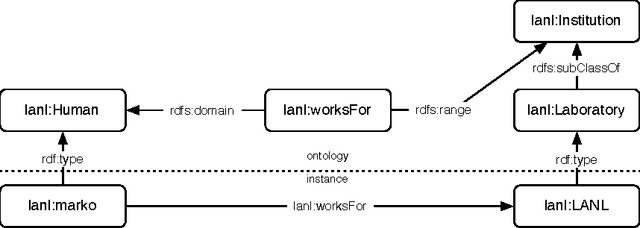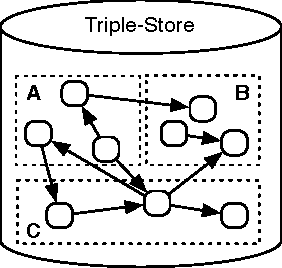Jennifer H. Watkins
Faith in the Algorithm, Part 2: Computational Eudaemonics
Apr 01, 2009


Abstract:Eudaemonics is the study of the nature, causes, and conditions of human well-being. According to the ethical theory of eudaemonia, reaping satisfaction and fulfillment from life is not only a desirable end, but a moral responsibility. However, in modern society, many individuals struggle to meet this responsibility. Computational mechanisms could better enable individuals to achieve eudaemonia by yielding practical real-world systems that embody algorithms that promote human flourishing. This article presents eudaemonic systems as the evolutionary goal of the present day recommender system.
Using RDF to Model the Structure and Process of Systems
Oct 15, 2007


Abstract:Many systems can be described in terms of networks of discrete elements and their various relationships to one another. A semantic network, or multi-relational network, is a directed labeled graph consisting of a heterogeneous set of entities connected by a heterogeneous set of relationships. Semantic networks serve as a promising general-purpose modeling substrate for complex systems. Various standardized formats and tools are now available to support practical, large-scale semantic network models. First, the Resource Description Framework (RDF) offers a standardized semantic network data model that can be further formalized by ontology modeling languages such as RDF Schema (RDFS) and the Web Ontology Language (OWL). Second, the recent introduction of highly performant triple-stores (i.e. semantic network databases) allows semantic network models on the order of $10^9$ edges to be efficiently stored and manipulated. RDF and its related technologies are currently used extensively in the domains of computer science, digital library science, and the biological sciences. This article will provide an introduction to RDF/RDFS/OWL and an examination of its suitability to model discrete element complex systems.
* International Conference on Complex Systems, Boston MA, October 2007
 Add to Chrome
Add to Chrome Add to Firefox
Add to Firefox Add to Edge
Add to Edge